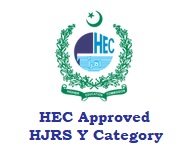Evaluation of the weighted least square based Receiver Autonomous Integrity Monitoring (RAIM) for single frequency GNSS receivers
DOI:
https://doi.org/10.47264/idea.nasij/3.2.5Keywords:
GNSS, GPS, RAIM, integrity monitoring, weighted least square, fault detection, fault identification, faulty measurementsAbstract
Single frequency receivers for Global Navigation Satellite System (GNSS) are low-cost and easily accessible, deeming them cost-effective for commercial applications requiring localization and tracking. However, the positioning solution these receivers provide must conform to desired reliability standards. A reliability check is essential in the signal-degraded environment, where a position fix might be unacceptably inaccurate. Under such conditions, faulty measurements need to be identified and excluded to ensure the system's integrity and get a reliable solution. In this paper, a Receiver Autonomous Integrity Monitoring (RAIM) scheme is devised that employs different tests. The first test performs a global sweep on all epochs and raises the alarm after detecting the fault. Next, a group of tests are performed to identify the satellite responsible for producing the faulty measurements. Once identified, it is then excluded from the measurements to maintain the reliability of the positioning provided by the receiver. The results indicate that a polling scheme based on multiple tests identifies the faulty satellite correctly and minimizes the false alarm rate if either of these tests is performed individually.
Downloads
Published
How to Cite
Issue
Section
Categories
License
Copyright (c) 2022 Sunnyaha Saeed, Salma Zainab Farooq, Imtiaz Nabi

This work is licensed under a Creative Commons Attribution-NonCommercial 4.0 International License.
Licensing & Copyright Policies
Since July 2023, the manuscripts in NASIJ-IDEA are open-access content published under the Creative Commons Attribution 4.0 (CC BY 4.0) International License http://creativecommons.org/licenses/by/4.0/. This license permits use, distribution, and reproduction in any medium, provided the original work and source are properly cited.
The copyright policy of NASIJ-IDEA is based on a non-exclusive publishing agreement, according to which the journal retains the right of first publication, but the author(s) are free to publish their work subsequently. The copyright of all work rests with the author(s).
The users may use, reproduce, disseminate or display the article(s) provided that the author(s) are attributed as the original creators. The authors of NASIJ-IDEA are encouraged to familiarise themselves with the various Creative Commons licenses.
Readers of NASIJ-IDEA are advised to consult the licensing information embedded in each published work to ensure they are familiar with the terms of use that apply.








